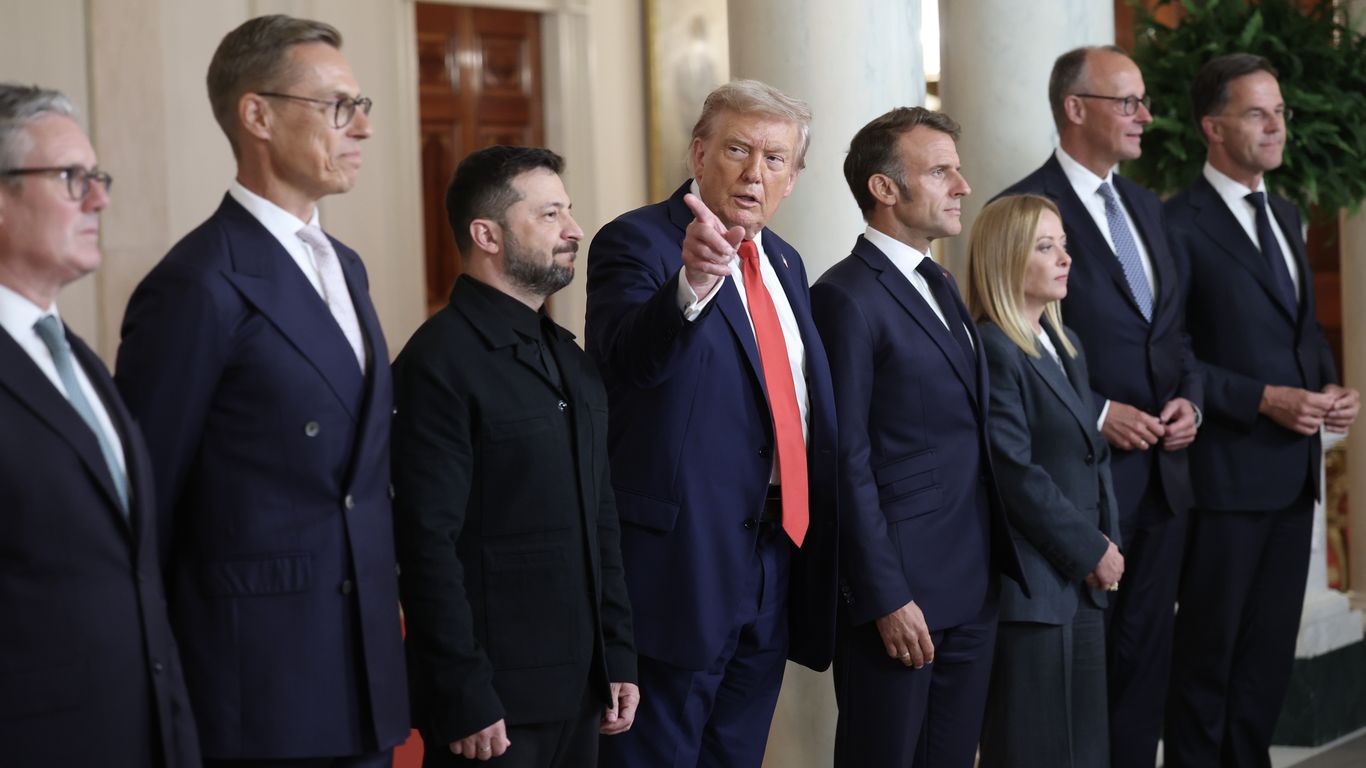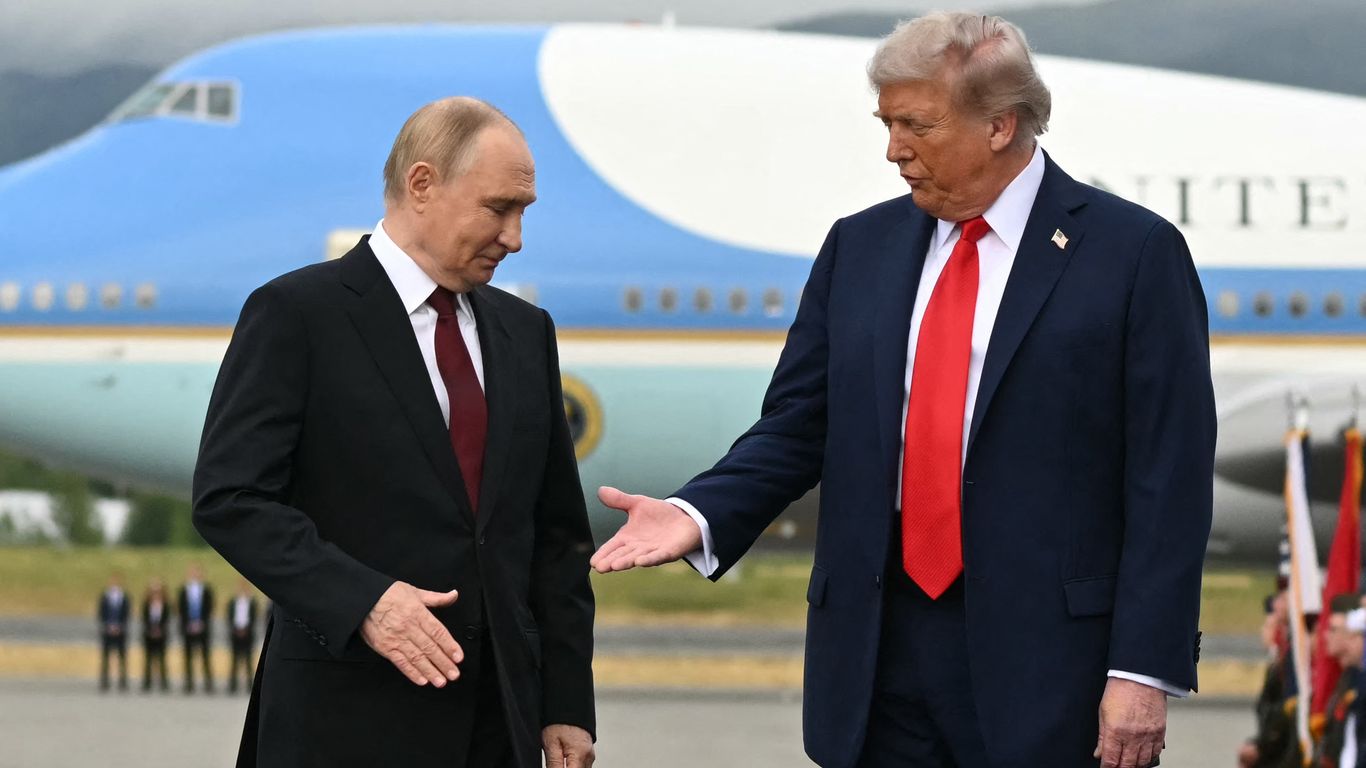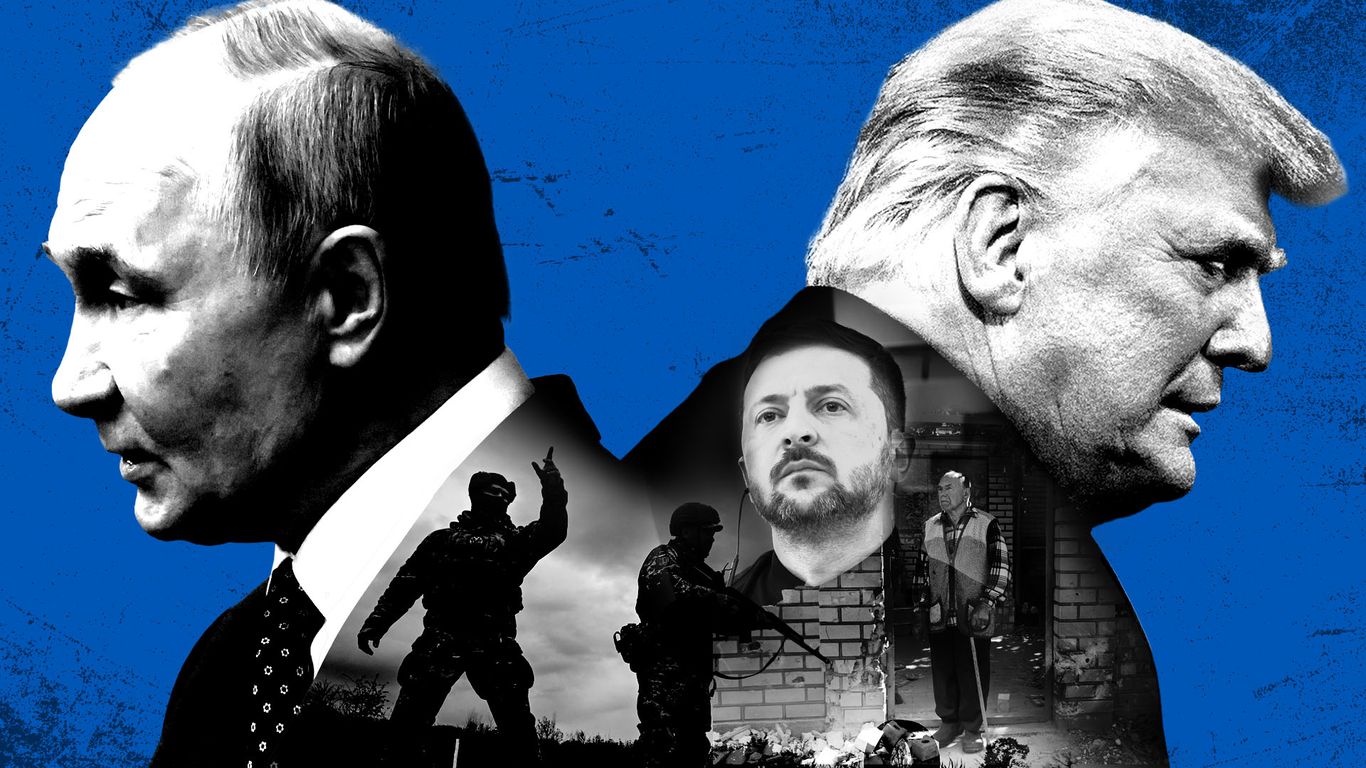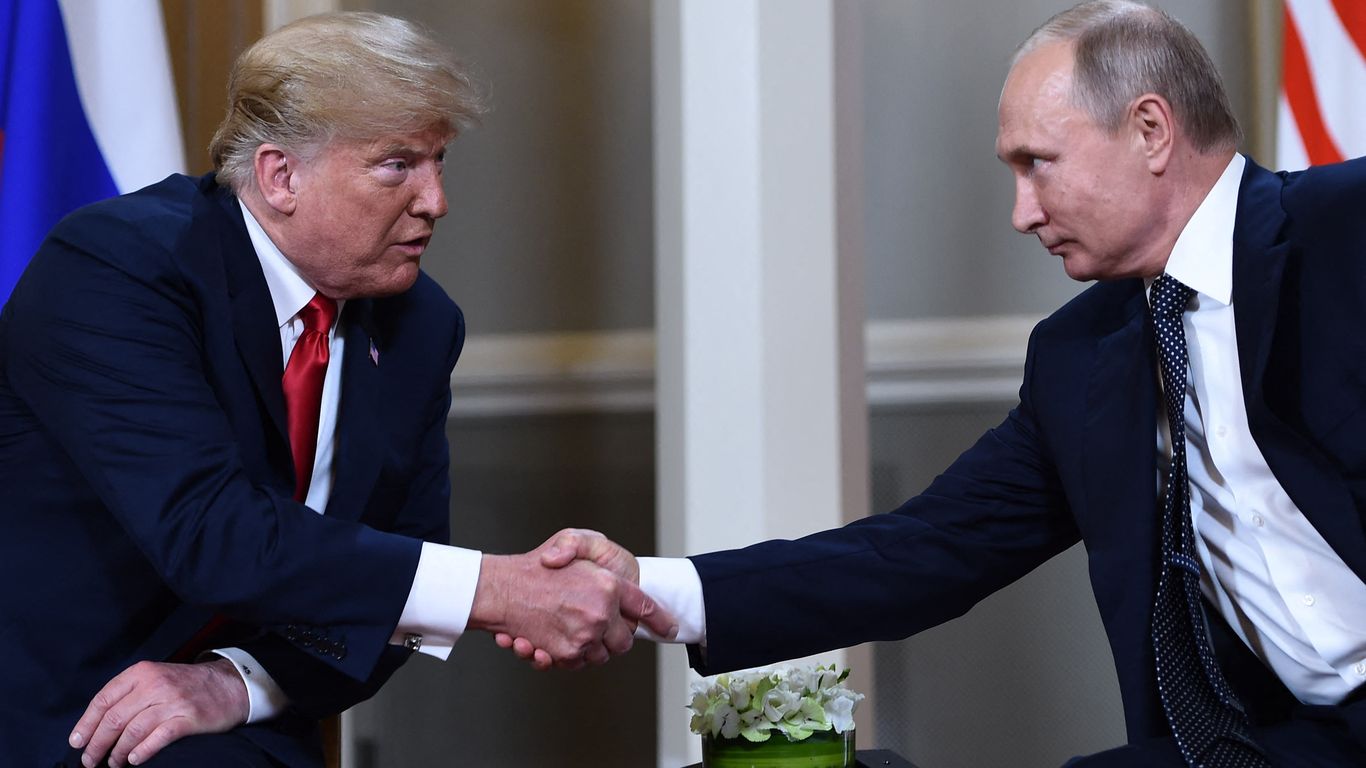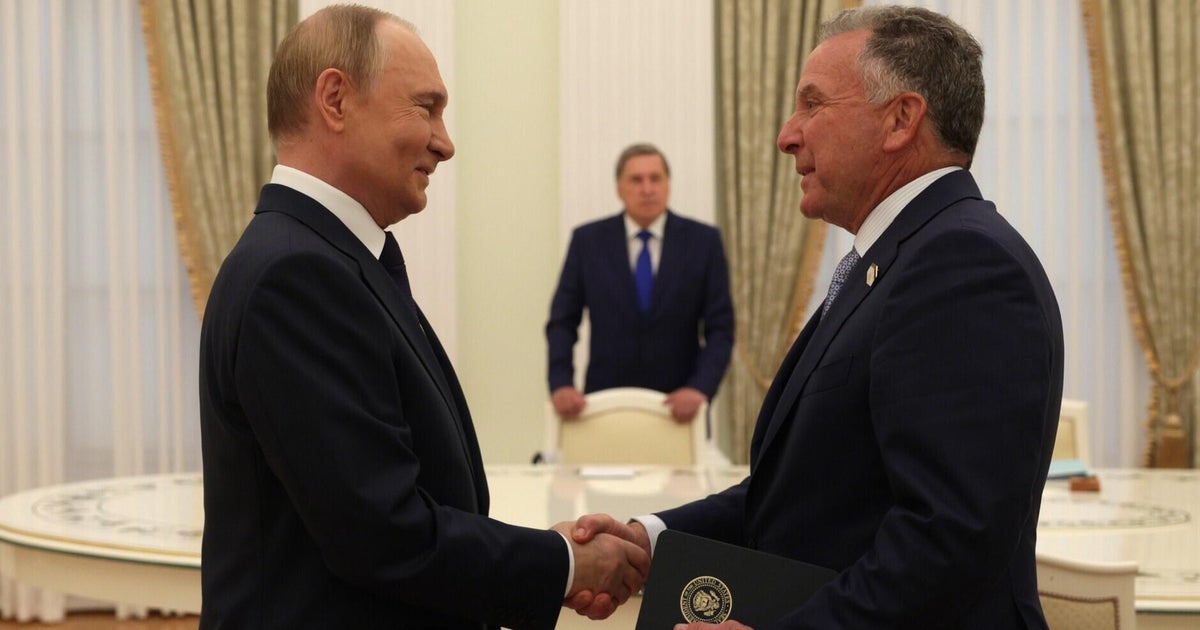Zelensky Warns of Putin's Escalating Aggression
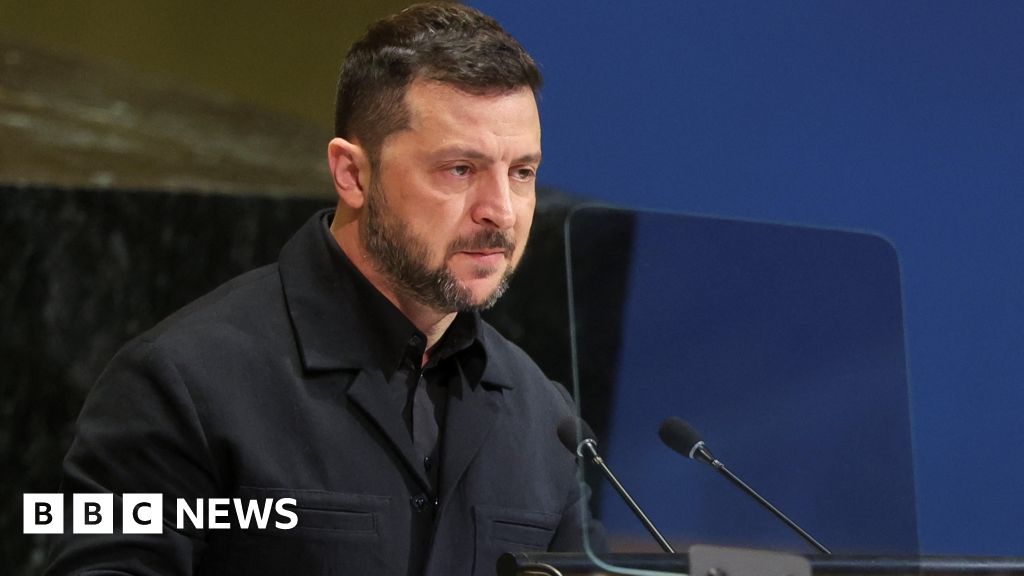
Introduction
Ukrainian President Zelensky has issued a dire warning to the international community about the escalating conflict with Russia. In a speech to the United Nations, he stated that Russian President Vladimir Putin "will keep driving the war forward wider and deeper" if not stopped. This is a clear indication that the aggression in Ukraine is just the beginning for Putin.
Expansion of Aggression
Zelensky's statement is supported by recent events, including the annexation of Crimea and the ongoing military intervention in eastern Ukraine. However, it is not just limited to Ukraine. Russia has also been involved in conflicts in Georgia, Moldova, and Syria. This pattern of aggression raises concerns about Russia's intentions and the potential for further expansion in the future.
Implications for the International Community
The failure to address and stop Russia's aggression in Ukraine has already led to devastating consequences for the country and its people. But as Zelensky warned, if Russia is not stopped, the impact will be felt beyond Ukraine. The international community must take a unified and firm stance against Russian aggression to prevent further conflicts and protect the sovereignty of neighboring countries.
About the People Mentioned
Zelensky
Volodymyr Zelensky, born January 25, 1978, in Kryvyi Rih, Ukraine (then part of the Soviet Union), is a former actor and comedian who serves as the sixth President of Ukraine.[1][2][5] Raised by Jewish parents, he earned a law degree from Kyiv National Economic University in 2000 and built a career in entertainment, founding the production company Kvartal 95 in the late 1990s.[1][5][6] He starred as a corruption-fighting teacher-turned-president in the TV series *Servant of the People*, which later became the name of his political party.[1][2] In 2019, Zelensky entered politics as a novice, campaigning on an anti-corruption platform that resonated with voters disillusioned by the establishment.[2][3] He won the presidential election on April 21 with 73% of the vote in the runoff against incumbent Petro Poroshenko, then was sworn in on May 20 and dissolved parliament to trigger snap elections.[1][2][5] Early challenges included the ongoing Donbas conflict and Russia's annexation of Crimea in 2014; Zelensky pushed anti-corruption laws and sought diplomatic resolutions.[3] Russia's full-scale invasion of Ukraine on February 24, 2022, transformed his presidency.[1][2][3] Zelensky declared martial law, refused evacuation from Kyiv, and rallied national resistance, earning global acclaim for his leadership likened to Winston Churchill.[1][3][4] His daily video addresses condemned Russian actions, secured Western aid, and addressed forums like the UN and U.S. Congress.[1][3] Ukrainian forces recaptured territory in Kharkiv and Kherson in late 2022, with Zelensky visiting front lines.[2] He applied for EU membership amid the war.[3] As of 2026, Zelensky remains a wartime leader, credited with unifying Ukraine, mobilizing international support, and sustaining the nation's defense against Russian aggression, though facing ongoing military and strategic hurdles.[4] Married to Olena Zelenska, he has two children.[5]
Vladimir Putin
Vladimir Putin is the current President of Russia, a position he has held for multiple terms since 2000, with a brief interlude as Prime Minister from 2008 to 2012[1][3]. Born in Leningrad (now Saint Petersburg) in 1952, Putin began his career in the Soviet Union’s security services, joining the KGB in 1975 and rising to the rank of Lieutenant Colonel by the time he left in 1991, following postings in East Germany and Leningrad[4]. After the Soviet Union’s collapse, he transitioned into politics, serving as an adviser to Saint Petersburg Mayor Anatoly Sobchak and later moving to Moscow, where he held various administrative roles under President Boris Yeltsin[6]. Putin was appointed Prime Minister in August 1999 and became acting President when Yeltsin unexpectedly resigned that December[3][6]. He won his first presidential election in March 2000, promising to stabilize Russia’s economy and political system after the tumultuous 1990s[3][7]. During his initial terms, he centralized power, reasserted federal control over Russia’s regions, and curtailed the influence of the country’s oligarchs through legal and economic measures[7]. Putin was re-elected in 2004 but, due to constitutional term limits, stepped aside in 2008, becoming Prime Minister under his successor Dmitry Medvedev, while retaining significant influence[3]. Constitutional amendments later extended presidential terms, and Putin returned to the presidency in 2012[1]. Putin’s time in office has been marked by assertive foreign policy, including military interventions in Syria in support of President Bashar al-Assad and the 2014 annexation of Crimea, which led to international sanctions[1]. Domestically, his tenure has seen increased state control over media, the suppression of political opposition, and constitutional changes consolidating executive authority[1]. In 2022, Russia’s full-scale invasion of Ukraine triggered a major international crisis, further isolating Russia from the West and prompting widespread condemnation[1]. As of 2025, Putin remains a dominant figure in Russian politics, having secured another term in office through constitutional changes that allow him to potentially remain president until 2036[1]. His leadership continues to shape Russia’s domestic trajectory and its role in global affairs, amid ongoing conflict in Ukraine and strained relations with NATO and Western countries[1].
About the Organizations Mentioned
United Nations
The United Nations (UN) is a pivotal international organization established in 1945, following the devastation of World War II, with the primary goal of maintaining global peace and security, fostering international cooperation, and promoting social progress. The UN Charter, signed by 51 founding member states, including the United States, the United Kingdom, China, and the Soviet Union, laid the foundation for this ambitious endeavor[1][3]. ## History and Structure The UN was born out of the failures of its predecessor, the League of Nations, which failed to prevent World War II. Key planning meetings, such as the Dumbarton Oaks Conference in 1944, defined the UN's structure, which includes the General Assembly, the Security Council, the Economic and Social Council, the Trusteeship Council, the International Court of Justice, and the Secretariat[1][6]. The Security Council, with five permanent members (the United States, China, France, Russia, and the United Kingdom), holds significant influence due to its veto power[2]. ## Key Achievements Over the years, the UN has played a crucial role in conflict resolution, human rights advocacy, and sustainable development. Notable achievements include the establishment of the Universal Declaration of Human Rights in 1948 and the implementation of numerous peacekeeping missions worldwide[3][4]. The UN has also been instrumental in addressing global challenges such as climate change and pandemics through its various programs and agencies. ## Current Status Today, the UN comprises 193 member states, with its most recent addition being South Sudan in 2011[5]. The organization continues to evolve, addressing emerging issues like digital governance and cybersecurity. Despite challenges, the UN remains a cornerstone of international diplomacy and cooperation. ## Notable Aspects The UN's work is not limited to politics; it also impacts business and technology through initiatives that promote sustainable development and digital inclusion. Its role in setting global standards and fostering international cooperation makes it a significant player in shaping the
